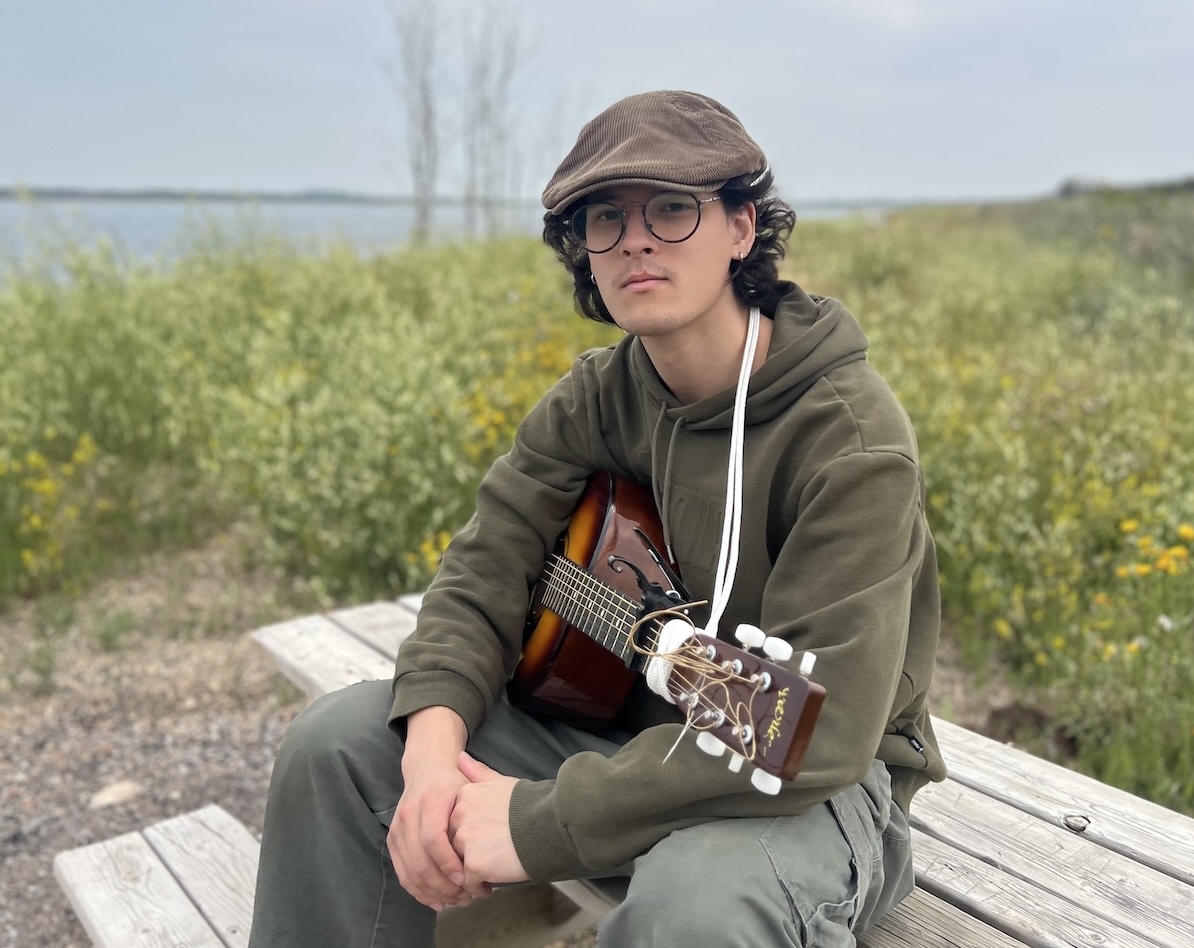Technology
Three things witchcraft taught me about God
People find Jesus in a lot of places, but I found Him in a spellbook. Growing up evangelical and queer, I was disenfranchised by a repressive and hypocritical church. Nevertheless, I thirsted for connection to the Divine. A meeting with a witch led me to discover a group whose love and openness made me feel spiritually at home for the first time.
Witchcraft, I learned, was not the stereotype of old women riding broomsticks. Rather, it was a vibrant community of people from all genders and backgrounds practicing magick—a term encompassing an enormous range of practices, from Norse rune reading to Appalachian horticulture and even Christian saint-work—outside the bounds of institutional religion. The beauty of witchcraft lies in its diversity of approach, which makes simple definitions difficult to pin down, but my own practice engaged with a number of pagan Anglo-Saxon gods.
As a witch, I always thought Christianity was a dead spirituality with nothing to offer. However, when one of my occult friends made the offhand comment that Yeshua of Nazareth was also a magician, a lightbulb went off in my head. The result was a spiritual journey, one where I rediscovered voices in the Christian mystic tradition that I’d never heard as an evangelical.
Now, I find myself in a unique position. I’ve returned to Christianity in the Anglican Communion, and while I no longer identify as a witch, I’ve reflected that the perspective I gained doing witchcraft has offered new ways of understanding the person and practice of Christ. In this spirit, I hope to foster dialogue between two communities that have been divided due to long histories of persecution and misunderstanding.
Creation is loved
Canadian Christianity is rooted in settler-colonial Christianity. Many of the early settlers believed non-Christian Indigenous people were “savages” to be civilized and converted, and the land was something God had given them to exploit.
We understand this in the Anglican Communion as we repent our sins against Indigenous peoples today. However, we must also question colonial Christianity’s assumptions about the land in this process, such as the idea that the natural world is merely inanimate wilderness to be tamed and exploited.
Witches contribute to this conversation with an ancient proposal: that nature is not an object to dominate but a person worthy of respect. In my own walk, I celebrated seasonal festivals in sacred forests, prayed alongside the trees and animals, and learned that humanity is not alone here on Earth. Through this animist framework, I renewed my spiritual relationship with creation by viewing the natural world as alive and spiritually active.
Returning to Christ with this viewpoint helped me see that the mark of God was not someplace far off but present in creation. Scripture tells us that God loves all creatures (Mat 10:29) and that all things sustain themselves through God (Acts 17:28). Seeing God in the mountains, the seas, and in our animal friends, I could no longer believe that the abuses Christians commit against creation were justified. We ask ourselves to see Christ in one another, but how differently would we act if we saw God’s love in our non-human neighbours?
Christ, our ancestor
Raised in suburban Canada, I felt that I was alone in history. My life was fastpaced, but in the face of eternity I knew I was a tiny speck. I felt alienated, especially by the idea that my ancestors were distant, long-dead people, and I suspect I’m not alone.
Arriving in the neopagan community, I discovered that my forebears weren’t quite so far away. Witches reclaim their ancestry through ritual. Take the Celtic tradition of Samhain, a time near the autumn equinox when the boundary between our lives and the Otherworld— a realm outside of time inhabited by gods, spirits, and ancestors—is believed to thin. By celebrating these festivals, I experienced my ancestors as present, and knew that I was part of something much bigger.
When I learned that ancient Samhain is connected to the church’s All Saints’ Day, I discovered Christ anew, not only as a saviour, but as an ancient family member. Christ is our spiritual ancestor because He opened God’s covenant lineage to all through His sacrifice. The Church breathes life into this reality through her traditions. Each week, we reaffirm creeds that Christians have recited for countless generations, reliving the story of Christ’s Passion through our liturgy. These celebrations connect us to the spiritual ancestors who’ve died in Christ. More importantly however, they are why we can boldly call God our Father; we have been welcomed into a family with deep roots in history.
The nature of gifts
The God I was taught about as a kid was legalistic. My parents said that God gave us laws to demonstrate why we deserve punishment, but we wouldn’t be punished if we accepted the “gift” of Jesus. This sounded eerily like a hostage exchange and made me understandably suspicious. Eventually, I concluded that this dynamic was emotionally abusive. Threatening to hurt someone if they don’t accept your gift is wrong. So I left the church.
Witchcraft challenged my view of gifts through the concept of reciprocity, the idea that the “shape” of a gift isn’t simply one-way. Giving and receiving gifts from the gods in a two-way cycle is a natural show of appreciation. This is why witches often say they “work with” a deity —the relationship of exchange is emphasized, not the obligation of a transaction.
Learning this helped me accept God’s gifts. In a transaction, the weight of obligation and threat of punishment bind us. We give and receive for essentially selfish reasons, trying to extract value or preserve ourselves. But examining God as a reciprocal being, I harnessed a force which is far more powerful (Jo 6:26). This is the gift of love, inflamed in our hearts by Christ (Jo 3:16). This gift flows from God through us and back to Christ in by giving to our communities (Ma 25:37-40).
People find Jesus in a lot of places, but I found Him in a spellbook. Growing up evangelical and queer, I was disenfranchised by a repressive and hypocritical church. Nevertheless, I thirsted for connection to the Divine. A meeting with a witch led me to discover a group whose love and openness made me feel spiritually at home for the first time.
Witchcraft, I learned, was not the stereotype of old women riding broomsticks. Rather, it was a vibrant community of people from all genders and backgrounds practicing magick—a term encompassing an enormous range of practices, from Norse rune reading to Appalachian horticulture and even Christian saint-work—outside the bounds of institutional religion. The beauty of witchcraft lies in its diversity of approach, which makes simple definitions difficult to pin down, but my own practice engaged with a number of pagan Anglo-Saxon gods.
As a witch, I always thought Christianity was a dead spirituality with nothing to offer. However, when one of my occult friends made the offhand comment that Yeshua of Nazareth was also a magician, a lightbulb went off in my head. The result was a spiritual journey, one where I rediscovered voices in the Christian mystic tradition that I’d never heard as an evangelical.
Now, I find myself in a unique position. I’ve returned to Christianity in the Anglican Communion, and while I no longer identify as a witch, I’ve reflected that the perspective I gained doing witchcraft has offered new ways of understanding the person and practice of Christ. In this spirit, I hope to foster dialogue between two communities that have been divided due to long histories of persecution and misunderstanding.
Creation is loved
Canadian Christianity is rooted in settler-colonial Christianity. Many of the early settlers believed non-Christian Indigenous people were “savages” to be civilized and converted, and the land was something God had given them to exploit.
We understand this in the Anglican Communion as we repent our sins against Indigenous peoples today. However, we must also question colonial Christianity’s assumptions about the land in this process, such as the idea that the natural world is merely inanimate wilderness to be tamed and exploited.
Witches contribute to this conversation with an ancient proposal: that nature is not an object to dominate but a person worthy of respect. In my own walk, I celebrated seasonal festivals in sacred forests, prayed alongside the trees and animals, and learned that humanity is not alone here on Earth. Through this animist framework, I renewed my spiritual relationship with creation by viewing the natural world as alive and spiritually active.
Returning to Christ with this viewpoint helped me see that the mark of God was not someplace far off but present in creation. Scripture tells us that God loves all creatures (Mat 10:29) and that all things sustain themselves through God (Acts 17:28). Seeing God in the mountains, the seas, and in our animal friends, I could no longer believe that the abuses Christians commit against creation were justified. We ask ourselves to see Christ in one another, but how differently would we act if we saw God’s love in our non-human neighbours?
Christ, our ancestor
Raised in suburban Canada, I felt that I was alone in history. My life was fastpaced, but in the face of eternity I knew I was a tiny speck. I felt alienated, especially by the idea that my ancestors were distant, long-dead people, and I suspect I’m not alone.
Arriving in the neopagan community, I discovered that my forebears weren’t quite so far away. Witches reclaim their ancestry through ritual. Take the Celtic tradition of Samhain, a time near the autumn equinox when the boundary between our lives and the Otherworld— a realm outside of time inhabited by gods, spirits, and ancestors—is believed to thin. By celebrating these festivals, I experienced my ancestors as present, and knew that I was part of something much bigger.
When I learned that ancient Samhain is connected to the church’s All Saints’ Day, I discovered Christ anew, not only as a saviour, but as an ancient family member. Christ is our spiritual ancestor because He opened God’s covenant lineage to all through His sacrifice. The Church breathes life into this reality through her traditions. Each week, we reaffirm creeds that Christians have recited for countless generations, reliving the story of Christ’s Passion through our liturgy. These celebrations connect us to the spiritual ancestors who’ve died in Christ. More importantly however, they are why we can boldly call God our Father; we have been welcomed into a family with deep roots in history.
The nature of gifts
The God I was taught about as a kid was legalistic. My parents said that God gave us laws to demonstrate why we deserve punishment, but we wouldn’t be punished if we accepted the “gift” of Jesus. This sounded eerily like a hostage exchange and made me understandably suspicious. Eventually, I concluded that this dynamic was emotionally abusive. Threatening to hurt someone if they don’t accept your gift is wrong. So I left the church.
Witchcraft challenged my view of gifts through the concept of reciprocity, the idea that the “shape” of a gift isn’t simply one-way. Giving and receiving gifts from the gods in a two-way cycle is a natural show of appreciation. This is why witches often say they “work with” a deity —the relationship of exchange is emphasized, not the obligation of a transaction.
Learning this helped me accept God’s gifts. In a transaction, the weight of obligation and threat of punishment bind us. We give and receive for essentially selfish reasons, trying to extract value or preserve ourselves. But examining God as a reciprocal being, I harnessed a force which is far more powerful (Jo 6:26). This is the gift of love, inflamed in our hearts by Christ (Jo 3:16). This gift flows from God through us and back to Christ in by giving to our communities (Ma 25:37-40).



